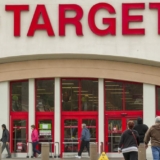Looming Social Security Crisis Could Affect Millions
As the nation approaches the 2024 presidential election, a ticking time bomb looms largely unmentioned in campaign speeches and policy debates: Social Security’s impending financial crisis. A new report from the CRFB has revealed that the Old-Age and Survivors Insurance (OASI) Trust Fund, a crucial reservoir supporting Social Security, is on track to run dry by 2033. This alarming reality could trigger a 21% cut in benefits for millions of American retirees if no corrective measures are taken.
The CRFB’s report underscores a fundamental issue: Social Security is currently disbursing more in benefits than it garners from payroll taxes. This imbalance is steadily depleting the OASI Trust Fund, setting the stage for significant financial shortfalls unless proactive steps are taken.
What is perhaps most concerning about this crisis is the deafening silence from the presidential candidates who are vying for the highest office in the land. Despite the gravity of the situation, neither of the leading contenders in the 2024 race has put forth a substantive plan to address the looming shortfall. This lack of focus on Social Security reform not only underscores a broader disconnect between political rhetoric and real-world issues but also threatens the financial security of millions of American seniors.
In this context, the absence of a clear, actionable strategy from presidential candidates is deeply troubling. As the election campaigns intensify, it is imperative that candidates shift their focus from partisan squabbles to the pressing realities of Social Security’s future. Addressing this issue with clarity and urgency will not only demonstrate a commitment to fiscal responsibility but also honor the promise made to generations of Americans.
As voters prepare to head to the polls, the lack of attention given to Social Security reform should be a critical consideration. The looming threat of benefit cuts is not just a policy issue but a personal one for millions of families across the country. The next president will have to confront this challenge head-on, and it is the electorate’s responsibility to ensure that this issue does not remain a mere footnote in the ongoing political discourse.






